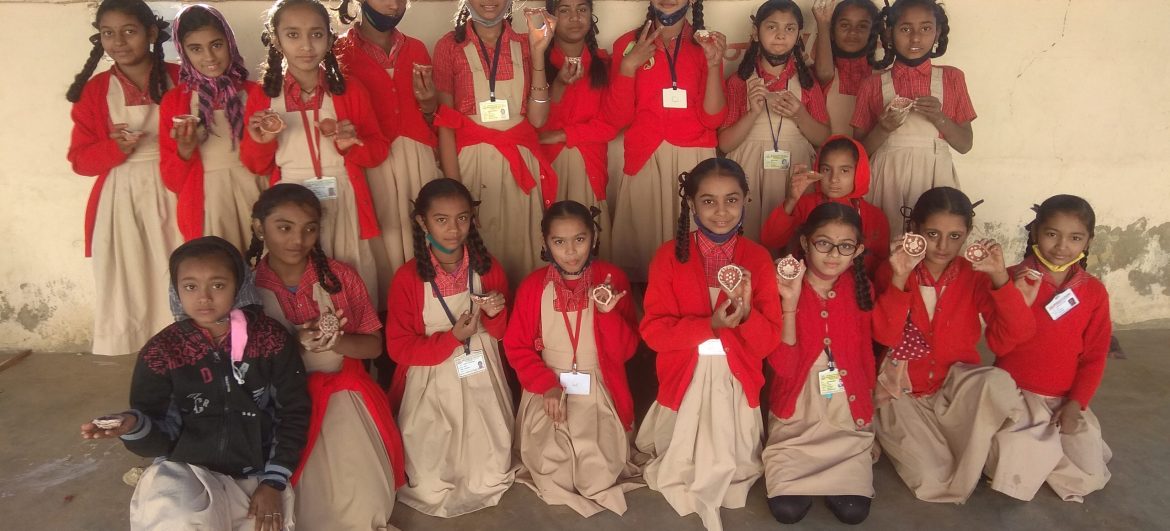Quis autem velum iure reprehe nderit. Lorem ipsum dolor sit nulla or narjusto laoreet onse ctetur adipisci.

Khamir
About the organization
Khamir works to strengthen and promote the rich artisanal traditions of the Kachchh district. We strive to create a democratic and empowering space under which a range of stakeholders can exchange ideas and collaborate. We work to shift consumer perspectives and raise the cultural value placed on crafts. Our vision is of a vibrant and sustainable Indian craft sector in which crafts and artisans alike are highly valued by people worldwide. We envision repositioning and revitalizing the crafts of Kachchh so that they become a sustainable practice for the next generation of artisans.
Khamir’s mission is to serve as a platform for the promotion and preservation of traditional handicrafts, allied cultural practices, community, and local environments and enable rural creative industries in Kachchh to become profitable.
Project area
We work in various villages in the Kachchh district of Gujarat. Our education activities are in the villages of Bhujodi, Bharasar, Ajrakhpur and Awadhnagar.
Our strategies and focus
The craft knowledge is in the immediate context of thousands of students across the rural and urban places in the district. However, they remain excluded from the schooling system. The schools have little to no inclusion of this in their pedagogies despite the curriculum having relevant concepts that are associated with the children’s life outside the classroom. These children grow up leading two very disjointed lives, one inside the school and the one outside. With existing systemic challenges such as rote learning and diagnostic prescriptive teaching, skill development, and practical learning approaches are of lesser priority. As a result, students’ learning is limited to their textbooks and remains aloof to its application outside the classroom.
The Craft Curriculum Project aims to reposition handicrafts in the modern educational systems of Kachchh through a systemic approach that relooks at primary education through the context of craft. The learning journeys undertaken by craft-based families have an experiential and sensorial component that is by default focused on learning from the context and practically applying the learnings across various stages of life. The initiative attempts to explore the integration of this component in modern pedagogies and to make education meaningful as the learner learns about life through art.
Our challenges
Teachers’ participation: As part of our efforts, we noticed that the participation of teachers was limited where they attended the sessions with children but could not yet provide inputs in designing the sessions or integrating them into their classroom teaching plans. How can we integrate crafts into a school timetable and school subjects that follow their structure, is a challenge for the project.
Convincingly engage parents: It is hard for them to see and accept simple day-to-day activities like cooking or any other craft activities as a medium of learning. This makes it difficult for them to accept these activities as educational.
Artisan engagement: Engaging artisans in the project was a practical challenge due to their unavailability for the project activities as they are engaged in their own work. How can we effectively engage them regularly has been a challenge.
The overall learning has been that the project of integrating crafts with school is a new approach that the various stakeholders are yet to get used to. The challenge is how to structure it such that it becomes effectively operationalized in the school setup.
Future plans
We plan to scale the project to new schools in a step-by-step manner. We hope to inaugurate:
- A 3-day crafts mela to introduce new schools to various crafts of Kachchh and how it can be an educational or learning experience for the child.
- 8-week program for new schools who want to explore if they can include crafts in their curriculum for a full term. This would give the school a shorter glimpse into the actual program.
- 25-week full-term engagement with schools where we plan for better teacher participation in the program.
- Teacher training so that teachers can understand the role of crafts in the curriculum and take ownership of integrating it into their teaching plans.

